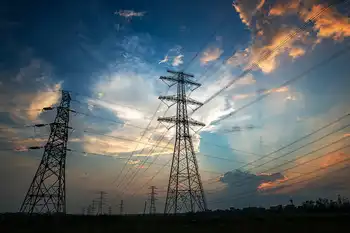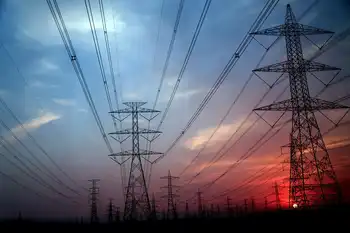New Jersey regulators approve green plans
The work is expected to create 965 jobs over the next 18 months and cost the average New Jersey household $3 to $8 a year, according to the state Board of Public Utilities.
"This is a win, win, win," board president Jeanne Fox said. "It creates jobs, it cuts carbon emissions and it saves customers who participate some money on their bills."
The projects are labor intensive and include subsidized energy audits for New Jersey homes and businesses. A typical home energy audit will cost $125, instead of the normal $300, according to Samuel Wolfe, the board's chief counsel. Additional subsidies will provide $1,000 worth of labor and materials for improvements identified by the voluntary audits, such as insulation.
The result would be reduced energy consumption at peak usage times, when energy providers run their least efficient power plants.
The job creation estimates for the plans from New Jersey Natural Gas, South Jersey Gas, and Public Service Electric and Gas Company (PSE&G) represent the initial wave of direct hiring needed to provide audits to the state's 3.7 million buildings by 2020.
The board is still considering energy efficiency proposals with a combined value of about $80 million from four other New Jersey utilities. It approved $956 million in accelerated infrastructure work April 16, expected to create 1,302 jobs installing new equipment, like power lines.
The programs are meant to advance a state energy master plan that calls for 20 percent less energy use by 2020, and 20,000 additional energy industry jobs by 2015.
Commissioner Elizabeth Randall cast the sole dissenting vote on the five member board on both the energy efficiency projects and the earlier infrastructure outlay, which will cost customers $9 to $12 a year. She said it's the wrong time to increase the burden on consumers, particularly with the federal stimulus dollars available. The state is in line for $149 million in federal energy stimulus funds.
New Jersey's unemployment rate rose to a 17-year-high of 8.8. percent in May, according to U.S. labor statistics. That compares with a U.S. jobless rate of 9.4 percent.
"Do we have to do this now?" Randall asked. "I would prefer to see us not funding these rate payer projects during the current recession."
Renters and property owners have equal financial burdens under the plan approved Wednesday, but only owners can approve the audits.
The bulk of the $225 million is ticketed for PSE&G, the state's largest utility, which expects to spend $190 million and create 688 jobs. Twenty-eight hospitals have already expressed interest in its business energy audits, and 12 are already undergoing audits.
Edward Fay, director of facility operations at Robert Wood Johnson University Hospital, said its audit would have cost them another $150,000 without the new program. He said the New Brunswick institution, which employs more than 4,000 people, expects to reduce its consumption by at least 8 percent.
"These auditors are looking at everything under the sun," Fay said. "They're tearing this place apart looking for savings."
Related News

Growing pot sucks up electricity and pumps out an astounding amount of carbon dioxide — it doesn't have to
VANCOUVER - In the seven months since the Trudeau government legalized recreational marijuana use, licensed producers across the country have been locked in a frenetic race to grow mass quantities of cannabis for the new market.
But amid the rush for scale, questions of sustainability have often taken a back seat.
According to EQ Research LLC, a U.S.-based clean-energy consulting firm, cannabis facilities can need up to 150 kilowatt-hours of electricity per year per square foot. Such input is on par with data centres, which are themselves 50 to 200 times more energy-intensive than a typical office building.
At the Lawrence Berkley National…




